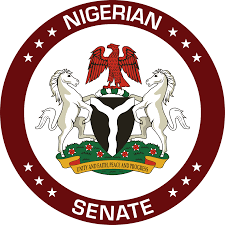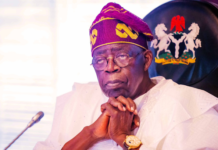The Senate has justified the purchase of 360 Sports Utility Vehicles for its members.
The Red Chamber was, however, silent on the actual cost of each vehicle but explained that members preferred the imported SUVs to locally manufactured ones.
Earlier, the Socio-Economic Rights and Accountability Project asked a Federal High Court in Lagos to stop the lawmakers from taking delivery of the SUVs pending the hearing and determination of the applications for injunction filed by the organisation.
The group’s applications for interim and interlocutory injunction followed reports that members of the House of Representatives are set to procure and take delivery of SUVs valued at N57.6 billion. According to reports, each of the SUVs would cost about N160 million.
Reacting to the development at a news conference on Tuesday, the Chairman of the Committee on Senate Services, Sunday Karimi, noted that Nigerians were picking on lawmakers but ignoring ministers who got about four official vehicles.
Karimi said, “Somebody that is a minister has more than three Land Cruisers, Prado and other vehicles and you are not asking them questions, why us?
“These vehicles that you see, go to Nigeria roads today, If I go home once, my senatorial district, I come back spending a lot on my vehicles because our roads are bad.
“I said the decision that we took on using Land Cruiser is the cost and durability.”
He explained further, “Before they came up with this. It is not the decisions of the senators alone, we analysed arriving at Land Cruisers.
“It was based on a comparative analysis of the cost of technical issues and durability on Nigerian roads.
” We want something that we can maintain for another four years and the issue of buying vehicles from the National Assembly, you know it is a recurring issue, it occurs every assembly, it will always come up. “
The lawmaker further explained that even at the state level, assembly members had access to official vehicles.
Karimi added, “If you got to state Houses of Assembly today, check out, most of them before they were even inaugurated, the governor would have bought vehicles waiting for them even local government chairmen.
“I drove the vehicle my local government chairman uses, so why the National Assembly?”
Justifying the high cost of the vehicles, Karimi said it was because the National Assembly owed the suppliers about N16bn.
He said, “I am the chairman of, the senate service. When I came into the senate, when they gave me their liability, they had a liability of over N16 billion that is made up of different vehicles of the 7th, 8th and 9th Assemblies.
“If you are a businessman and you supply vehicles for somebody in 2014 or 2015 or so and up till now they owed you.
“I am not trying to defend anybody, if you see them selling Land Cruisers in the market let’s say it is A cost, you don’t expect somebody that will supply it to supply it at the price they are selling it in the market.
“It has to leave a margin and the civil service for supply allowed for 25% margin plus that and VAT and I think that VAT is 7.5. Out of that 25% margin, they will still remove 5% tax from it.
“You are telling someone to supply and he may even not end up making payment for three years and you want him to supply at the price they are selling in the market, it is not possible.”
Group urges NASS to protect host communities in IOCs divestment process
The Environmental Rights Action/Friends of the Earth Nigeria (ERA/FoEN) has urged the National Assembly to address the environmental and human rights concerns raised by host communities.
Miss Elvira Jordan, ERA/FoEN’s Communication Officer, in a statement on Tuesday, said such concerns by host communities should be captured in the divestment plans of the International Oil Companies(IOCs) in Nigeria.
According to Jordan, the Executive Director of ERA/FoEN, Mr Chima Williams, paid an advocacy visit to the Minority Leader of the House of Representatives, Kingsley Chinda, in Abuja.
The visit is part of ERA/FoEN’s efforts to ensure that oil-bearing communities in the Niger Delta were not short-changed by divesting IOCs.
Speaking at the meeting, Williams explained that the controversy generated by the plans by Eni to sell its Nigerian subsidiary to Oando had exposed how the multinationals mine with reckless abandon.
Williams said that the multinational, after mining, left the toxic assets for indigenous companies that refused to shoulder their liabilities.
He stressed that the decision of the oil firms to leave the region without remediating oil pollution on farmlands and water systems was tantamount to sucking the juice from a fruit and leaving the chaff behind.
“In virtually all the cases where IOCs divestment has happened, host communities feel used and dumped hence a legislative intervention has become necessary.
“A public hearing is one among several approaches to address the new trend of the divestment by the multinationals, as they now see divestment plans as a way of running away from their responsibilities,” Williams said.
The ERA/FoEN boss also spoke on the group’s bid to document the divestment processes from the perspective of the host communities.
He said that ERA/FoEN had been working with host communities in Bayelsa, Rivers, Edo, and Delta among others, articulating the demands of the people in a policy brief which also pointed the way forward in holding the corporations to account.
In his response, Chinda said that the the IOCs divestment issue was one that touched the very core of the lives of Niger Delta communities, as it was one of the numerous challenges caused by oil exploration activities.
He further stated that the National Assembly would be willing to hear from affected communities and that he would continue to promote bills and legislations that uplifted the standard of living of Nigerians.
The legislator also pledged his readiness to continue working with civil society and groups in the Niger Delta to address the plight of host communities and the issues created by oil extraction.























